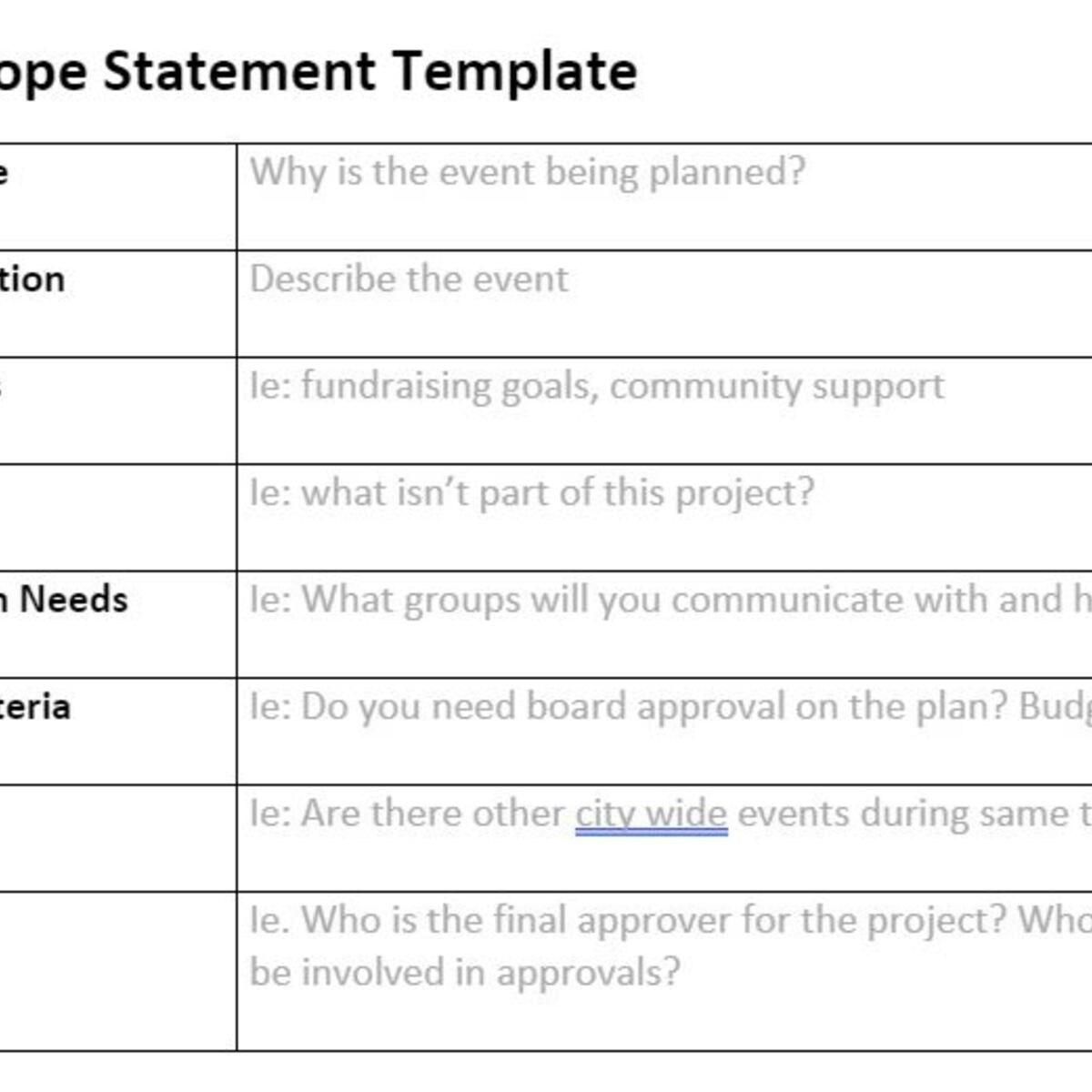Project Management
vigating the World of Project Management
Project Management is the discipline of initiating, planning, executing, controlling, and closing the work of a team to achieve specific goals and meet specific success criteria within a defined timeframe and budget. It involves a structured approach to managing projects, ensuring resources are used effectively, risks are mitigated, and stakeholders are kept informed. At its core, project management helps organizations deliver value by transforming ideas into tangible outcomes.
The appeal of project management often lies in its dynamic nature. Professionals in this field find themselves at the center of diverse initiatives, guiding teams, solving complex problems, and driving projects to successful completion. The sense of accomplishment that comes from seeing a project through from concept to reality can be incredibly rewarding. Furthermore, the skills developed in project management – such as leadership, communication, strategic thinking, and problem-solving – are highly transferable and valuable across a multitude of industries. This versatility means that a career in project management can offer varied and exciting opportunities for growth and impact.
Whether you are a student exploring future career paths, a professional considering a change, or simply curious about how large endeavors are successfully managed, understanding project management offers valuable insights into the orchestration of work in our modern world.
Introduction to Project Management
This section aims to provide a foundational understanding of project management, making it accessible even if you have no prior knowledge of the subject. We will explore what project management entails, how it has evolved, its core principles, and its crucial role in today's organizations and industries.
Definition and Scope of Project Management
Project management is the application of knowledge, skills, tools, and techniques to project activities to meet project requirements. Essentially, it's about guiding a team to achieve specific goals within set constraints, such as time and budget. The "scope" of a project refers to the sum of all the work, outputs, outcomes, and benefits, and the effort required to produce them. Defining the project scope clearly is a critical first step, as it outlines what is included in the project and, just as importantly, what is not. This common understanding among all stakeholders is vital for success.
A project itself is a temporary endeavor undertaken to create a unique product, service, or result. This temporary nature distinguishes projects from ongoing operations, which are typically repetitive and continuous. Project managers are the individuals responsible for leading these endeavors. Their role involves defining project objectives, creating a plan, allocating resources, and managing the team to ensure the project is completed on time, within budget, and to the satisfaction of stakeholders.
Effective project scope management involves several key processes, including defining the project's objectives and deliverables, creating a work breakdown structure (WBS) to divide the project into manageable tasks, and establishing procedures for verifying and approving completed work. This structured approach helps prevent "scope creep" – the uncontrolled expansion of project requirements – which is a common reason for project delays and budget overruns.
Historical Evolution of the Discipline
While the formal discipline of project management is relatively modern, its fundamental practices can be seen in ancient civilizations. The construction of monumental structures like the Egyptian pyramids or the Great Wall of China inherently required sophisticated planning, organization, and coordination of resources and labor over extended periods. These early endeavors, though not explicitly termed "project management," laid the groundwork for systematic approaches to complex tasks.
Modern project management began to take a more defined shape in the early 20th century, particularly with the rise of industrialization. A significant early milestone was the development of the Gantt chart by Henry Gantt in the 1910s, a visual tool for project scheduling that is still widely used today. The mid-20th century, particularly during and after World War II, saw a rapid acceleration in the development of project management methodologies. Complex military and government projects, such as the Manhattan Project, necessitated more organized and systematic approaches. This era saw the invention of crucial techniques like the Critical Path Method (CPM) and the Program Evaluation Review Technique (PERT) in the 1950s, which provided systematic ways to schedule and manage complex task dependencies.
The formalization of project management as a distinct profession gained momentum with the establishment of organizations like the American Association of Cost Engineers (now AACE International) in 1956 and the Project Management Institute (PMI) in 1969. PMI, in particular, has played a significant role in standardizing practices and offering certifications, with its publication of "A Guide to the Project Management Body of Knowledge (PMBOK® Guide)" in 1996 serving as a foundational text for the profession. The discipline continued to evolve, with approaches like PROMPTII (later PRINCE2) and Scrum emerging in the following decades. Today, project management is a dynamic field, continually adapting to new technologies, global interconnectedness, and changing business landscapes.
For those interested in exploring the foundational texts that have shaped the project management discipline, the following book is considered a cornerstone resource.
Key Principles and Objectives
At its heart, project management aims to achieve specific goals and objectives while balancing several critical constraints. A fundamental principle is the clear definition of project objectives. Without a well-defined target, a project lacks direction and a basis for measuring success. These objectives must align with the broader strategic goals of the organization.
Another key principle is meticulous planning. This involves breaking down the project into manageable tasks, estimating timelines and resources, identifying potential risks, and developing strategies to mitigate them. Effective resource management is also crucial, ensuring that the right people, tools, and materials are available when needed and are used efficiently. Communication is a continuous thread woven through all project management principles. Project managers must facilitate clear and consistent communication among team members, stakeholders, and any other involved parties.
The primary objectives of project management generally revolve around delivering the project on time, within the allocated budget, and to the required quality standards. Furthermore, effective project management seeks to maximize efficiency, optimize resource utilization, and manage risks proactively. Ultimately, the overarching goal is to deliver a product, service, or result that meets or exceeds stakeholder expectations and provides value to the organization.
Role in Modern Organizations and Industries
In today's fast-paced and complex business environment, project management has become indispensable for organizations across virtually all industries. Companies increasingly rely on projects to achieve strategic objectives, innovate, adapt to market changes, and deliver value to customers. Whether it's developing a new software application, constructing a building, launching a marketing campaign, or implementing a new business process, project management provides the framework for successful execution.
The role of project management is to provide structure, direction, and control. It ensures that projects are not ad-hoc endeavors but are managed with a systematic approach. This leads to improved efficiency, better resource allocation, reduced risks, and a higher likelihood of achieving desired outcomes. According to a McKinsey survey, a significant majority of senior executives view strong project management discipline as a top priority for their organizations. Furthermore, many organizations have established formal Project Management Offices (PMOs) to standardize processes, provide support to project managers, and ensure alignment with strategic goals.
Project management is no longer confined to traditional sectors like construction and engineering. It is now integral to fields such as information technology, healthcare, finance, marketing, and even non-profit organizations. The ability to manage projects effectively is a key differentiator for organizations, enabling them to respond to challenges, seize opportunities, and drive growth in an increasingly competitive global landscape. The demand for skilled project managers continues to grow, reflecting the critical role this discipline plays in modern organizational success.
To gain a foundational understanding of project management principles, these courses offer a great starting point.
Core Principles of Project Management
Understanding the core principles of project management is essential for anyone looking to navigate this field, whether as a student, a practitioner, or someone considering a career change. These principles provide the theoretical and practical underpinnings for successfully guiding projects from inception to completion.
Triple Constraint Theory (Scope, Time, Cost)
One of the most fundamental concepts in project management is the "Triple Constraint," often visualized as a triangle with sides representing Scope, Time, and Cost (or Budget). The theory posits that these three elements are inextricably linked, and a change in one will inevitably affect one or both of the others. For example, if the scope of a project increases (more features are added), it will likely take more time and/or cost more to complete. Conversely, if the budget is cut, the project manager might need to reduce the scope or extend the timeline.
Scope refers to the specific goals, deliverables, features, tasks, and deadlines of the project – essentially, everything that the project aims to achieve. Time relates to the project's schedule, including the deadlines for tasks, phases, and the overall project completion. Cost encompasses all the financial resources needed for the project, including labor, materials, equipment, and other expenses. The project manager's role often involves balancing these three constraints to deliver a successful project that meets stakeholder expectations. A fourth element, Quality, is often considered to be at the center of this triangle, as it is impacted by decisions made regarding scope, time, and cost.
Imagine you're building a treehouse. Scope: You initially plan a simple square treehouse with a ladder and a small window. Time: You want it finished in one weekend. Cost: You have a budget of $100 for wood and nails.
Now, let's see how the Triple Constraint works: If your child asks for a slide and a trapdoor (increasing scope), it will likely take more than one weekend (increasing time) and cost more than $100 (increasing cost). If you only have $50 (decreasing cost), you might have to build a smaller treehouse or use cheaper materials (decreasing scope), or it might take longer if you have to scrounge for free wood (increasing time). If you absolutely need it done by Saturday afternoon (decreasing time), you might need to ask a friend to help (potentially increasing cost if you buy them pizza) or simplify the design (decreasing scope). The project manager's job is to keep these three – what you're building, how long it takes, and how much it costs – in balance to make sure everyone is happy with the final treehouse.
Risk Management Frameworks
Risk management is a critical component of project management, involving the identification, assessment, and prioritization of risks, followed by coordinated and economical application of resources to minimize, monitor, and control the probability or impact of unfortunate events or to maximize the realization of opportunities. Projects, by their nature, involve uncertainty, and effective risk management helps in navigating these uncertainties to increase the likelihood of project success.
A risk management framework typically includes several key steps: Risk Identification: This involves systematically identifying potential risks that could positively or negatively affect the project. Techniques can include brainstorming, checklists, lessons learned from previous projects, and expert judgment. Risk Analysis: Once risks are identified, they need to be analyzed to understand their potential likelihood and impact. This can be qualitative (e.g., high, medium, low probability/impact) or quantitative (assigning numerical values to probability and impact). Risk Evaluation/Prioritization: After analysis, risks are evaluated and prioritized based on their severity. This helps the project team focus on the most critical risks. Risk Treatment/Response Planning: For prioritized risks, strategies are developed to address them. Common responses include avoidance (eliminating the cause of the risk), mitigation (reducing the likelihood or impact), transference (shifting the risk to a third party, e.g., through insurance), or acceptance (acknowledging the risk and deciding to take no action unless it occurs). For positive risks (opportunities), responses might include exploitation, enhancement, sharing, or acceptance. Risk Monitoring and Control: Throughout the project lifecycle, risks are continuously monitored, new risks are identified, and existing risk response plans are tracked and adjusted as needed.
Several standardized frameworks and methodologies exist, such as those outlined in the PMBOK® Guide or ISO 31000 (Risk management – Guidelines). The goal is not to eliminate all risks, as that is often impossible or prohibitively expensive, but to manage them intelligently to achieve project objectives.
This course can help you understand risk management within projects.
Stakeholder Communication Strategies
Stakeholders are individuals, groups, or organizations that may affect, be affected by, or perceive themselves to be affected by a decision, activity, or outcome of a project. Effective stakeholder communication is paramount to project success. It involves not just disseminating information but also engaging with stakeholders, understanding their needs and expectations, and managing their influence on the project.
Developing a robust stakeholder communication strategy typically involves several steps: Stakeholder Identification: The first step is to identify all potential stakeholders. This can include the project sponsor, team members, customers, end-users, suppliers, government agencies, and the local community, among others. Stakeholder Analysis: Once identified, stakeholders are analyzed based on their interest in the project, their level of influence, their expectations, and their potential impact. This helps in prioritizing communication efforts. Communication Planning: Based on the stakeholder analysis, a communication plan is developed. This plan outlines what information needs to be communicated, to whom, how often, through which channels (e.g., meetings, emails, reports, presentations), and who is responsible for the communication. Information Distribution: The planned information is then distributed to the relevant stakeholders in a timely and appropriate manner. Managing Stakeholder Expectations: This involves actively working with stakeholders to ensure their expectations are understood and managed. It may require negotiation and influencing to align expectations with project realities. Monitoring Communications: The effectiveness of communication strategies should be monitored throughout the project, and adjustments made as necessary to ensure information is flowing effectively and stakeholders remain engaged and informed.
Clear, consistent, and tailored communication helps build trust, manage expectations, resolve conflicts, and ultimately contributes to a smoother project execution and greater stakeholder satisfaction. Cultural considerations are also vital in international projects, requiring project managers to adapt communication styles to different cultural preferences.
These courses offer insights into managing project communication and stakeholders effectively.
Agile vs. Waterfall Methodologies
Agile and Waterfall are two of the most well-known project management methodologies, each with distinct approaches, strengths, and weaknesses. Understanding their differences is key to selecting the right methodology for a given project. Many organizations are also adopting hybrid approaches, blending elements of both.
The Waterfall methodology is a traditional, linear, and sequential approach. Projects are broken down into distinct phases (e.g., requirements, design, implementation, testing, deployment), and each phase must be fully completed before the next one begins. It's characterized by detailed upfront planning and documentation. Waterfall is often preferred for projects where requirements are well-understood, stable, and unlikely to change, such as in some construction or manufacturing projects. Its strength lies in its structure and clarity, but it can be inflexible if changes are needed mid-project.
The Agile methodology, on the other hand, is an iterative and incremental approach. Instead of extensive upfront planning for the entire project, Agile focuses on breaking the project into smaller, manageable cycles called sprints or iterations. At the end of each iteration, a potentially shippable product increment is delivered. Agile emphasizes flexibility, collaboration, customer feedback, and rapid response to change. It is well-suited for projects where requirements are expected to evolve or are not fully known at the outset, such as software development. Popular Agile frameworks include Scrum and Kanban.
Imagine you're baking a cake. Waterfall (like following a very strict recipe):
You first read the entire recipe from start to finish (Requirements). Then, you gather all your ingredients and tools precisely as listed (Design/Planning). Next, you mix everything exactly according to the instructions, bake it for the specified time (Implementation). Finally, you taste it (Testing) and serve it (Deployment). You don't move to the next step until the current one is completely done. If you realize halfway through baking that you forgot sugar, it's a big problem!
Agile (like experimenting and tasting as you go):You decide you want a chocolate cake (Initial Idea). You mix a small batch of batter for a mini-cupcake, bake it quickly, and taste it (First Iteration/Sprint). Maybe it needs more cocoa. So, for the next small batch, you add more cocoa, bake another mini-cupcake, and taste again (Second Iteration/Sprint). You keep doing these small batches, adjusting the recipe based on how each mini-cupcake turns out, until you have a recipe you love for the big cake. Agile lets you change things easily as you learn what works best, getting feedback (from your taste tests) often.
The following courses can provide a deeper understanding of these methodologies.
If you are interested in Agile methodologies, these resources provide valuable information.
Project Management Lifecycle Phases
The project management lifecycle provides a structured framework for guiding a project from its beginning to its end. While different models and methodologies may have slight variations, a widely recognized lifecycle consists of five key phases: Initiation, Planning, Execution, Monitoring/Controlling, and Closure. Understanding these phases is crucial for both academic study and practical application across various industries.
Initiation and Feasibility Analysis
The Initiation phase is the very first stage of the project lifecycle. This is where the project's objectives, purpose, and scope are broadly defined. The primary goal is to determine the project's viability and to secure authorization to proceed. This involves developing a business case that justifies the need for the project and outlines its potential benefits. Key activities include identifying the problem or opportunity the project will address, defining high-level deliverables, and understanding what success will look like.
A critical component of this phase is the feasibility analysis. This assessment examines whether the project is achievable from technical, economic, legal, operational, and scheduling perspectives. For instance, a feasibility study might evaluate if the required technology exists, if the organization has the necessary expertise, if the project aligns with legal and regulatory requirements, and if the expected benefits outweigh the costs. Stakeholder identification also begins here, pinpointing key individuals or groups who have an interest in or will be affected by the project.
The culmination of the initiation phase is often the creation of a Project Charter. This document formally authorizes the project and grants the project manager the authority to apply organizational resources to project activities. It typically includes the project's objectives, high-level scope, identified risks, key stakeholders, and the appointed project manager. Essentially, the initiation phase sets the stage and provides the foundational approval for the project to move forward.
These courses offer a good introduction to initiating projects.
Planning and Resource Allocation
Once a project is initiated and approved, the Planning phase begins. This is arguably the most critical phase, as thorough planning significantly increases the chances of project success. The primary objective here is to develop a detailed roadmap that the project team will follow. This involves breaking down the project's scope into smaller, manageable tasks, creating a schedule, estimating costs, and allocating resources.
Key activities in the planning phase include: Scope Definition: Refining the project scope and creating a detailed Work Breakdown Structure (WBS), which is a hierarchical decomposition of the total scope of work to be carried out by the project team. Activity Sequencing and Scheduling: Identifying task dependencies and creating a project schedule, often using tools like Gantt charts or network diagrams. This determines the timeline for each task and the overall project duration. Resource Planning: Identifying and allocating the necessary resources, including human resources (team members with specific skills), equipment, materials, and budget. Cost Estimation and Budgeting: Developing detailed cost estimates for all project activities and compiling them into an overall project budget. Risk Management Planning: Identifying potential risks, analyzing their likelihood and impact, and developing response strategies. Communication Planning: Defining how, when, and with whom project information will be communicated. Quality Planning: Establishing quality standards and metrics to ensure the project deliverables meet expectations.
The main output of this phase is a comprehensive Project Management Plan. This document serves as the guide for executing and controlling the project. It integrates all the subsidiary plans (scope, schedule, cost, risk, quality, communication, etc.) and outlines how the project will be executed, monitored, controlled, and closed. Effective resource allocation ensures that the right resources are available at the right time, preventing bottlenecks and optimizing efficiency.
The following courses provide insights into planning and resource allocation.
Execution and Team Leadership
The Execution phase is where the actual work of the project takes place. The project team carries out the tasks defined in the project management plan to create the project deliverables. This phase typically consumes the most time and resources. The project manager's role during execution is multifaceted, focusing on directing and managing project work, ensuring team members understand their roles and responsibilities, and facilitating communication and collaboration.
Team leadership is a critical aspect of the execution phase. Project managers need to motivate the team, resolve conflicts, and ensure that everyone is working cohesively towards the project goals. Effective leadership involves clear communication, providing support and guidance to team members, and fostering a positive and productive work environment. This might also involve managing stakeholder engagement, ensuring they are informed and their expectations are being met.
During execution, the project manager also focuses on quality assurance, ensuring that the work being performed meets the defined quality standards. Regular team meetings, progress updates, and performance reporting are common activities. The project manager must also manage any changes to the project scope, schedule, or budget that arise, following the established change control processes outlined in the project management plan.
These courses can help you understand the execution phase and team leadership.
Monitoring/Controlling Adaptations
The Monitoring and Controlling phase runs concurrently with the Execution phase. Its purpose is to track, review, and regulate the progress and performance of the project. This involves comparing actual performance against the project management plan, identifying any variances, and taking corrective actions as needed to get the project back on track.
Key activities in this phase include: Tracking Progress: Monitoring the status of project tasks, milestones, and deliverables. This often involves using project management software to track progress against the baseline schedule and budget. Performance Measurement: Using techniques like Earned Value Management (EVM) to assess schedule and cost performance. Variance Analysis: Identifying deviations from the plan and understanding their causes. Change Control: Managing changes to the project scope, schedule, or budget through a formal change control process. This ensures that all changes are properly evaluated, approved, and documented. Risk Monitoring: Tracking identified risks, implementing risk response plans, and identifying any new risks that emerge. Quality Control: Ensuring that project deliverables meet the specified quality standards through inspections and reviews. Reporting Performance: Communicating project status, progress, and forecasts to stakeholders.
Adaptations are often necessary during a project. The monitoring and controlling processes provide the mechanisms for identifying when changes are needed and for managing those changes effectively. This iterative feedback loop helps ensure that the project stays aligned with its objectives despite unforeseen challenges or evolving requirements.
This course delves into monitoring and controlling project aspects.
Closure and Post-Implementation Review
The Closure phase is the final stage of the project lifecycle. It marks the formal end of the project. This phase involves finalizing all project activities, obtaining formal acceptance of the project deliverables from the client or sponsor, and archiving project documents. It's important to ensure that all contractual obligations have been met and all outstanding issues are resolved.
Key activities in the closure phase include: Finalizing Deliverables: Ensuring all project deliverables are completed and accepted by the relevant stakeholders. Administrative Closure: Completing all administrative tasks, such as closing out contracts, paying final invoices, and archiving project records. Releasing Resources: Releasing project team members and other resources so they can be reassigned to new projects or operational roles. Documenting Lessons Learned: Conducting a post-implementation review or lessons learned session. This involves gathering feedback from the project team and stakeholders to identify what went well, what could have been done better, and any valuable insights gained during the project. This information is then documented and can be used to improve future projects. Celebrating Success: Recognizing the efforts of the project team and celebrating the successful completion of the project.
A thorough post-implementation review is crucial for organizational learning and continuous improvement. It helps organizations avoid repeating past mistakes and leverage successful strategies in future endeavors. Proper project closure ensures that all loose ends are tied up and provides a clear endpoint for the project effort.
The following book provides a comprehensive overview of project management practices, including the lifecycle phases.
Formal Education Pathways
For those aspiring to a career in project management or seeking to formalize their existing skills, various educational pathways are available. These range from undergraduate degrees to specialized MBA concentrations and doctoral research, alongside widely recognized professional certifications. Pursuing formal education can provide a strong theoretical foundation, practical skills, and credentials that are valued by employers.
Undergraduate Degree Specializations
Many universities now offer undergraduate degrees specifically in project management or business degrees with a specialization or concentration in project management. These programs typically cover the fundamental principles of project management, including planning, scheduling, budgeting, risk management, quality control, and stakeholder communication. Students learn about different project management methodologies, tools, and techniques.
Curricula often include courses in organizational behavior, leadership, business analytics, and operations management, providing a well-rounded business education. Some programs may also offer industry-specific tracks, allowing students to focus on areas like IT project management, construction project management, or engineering project management. An undergraduate degree in project management can be a solid starting point for entry-level roles in the field, providing the foundational knowledge and skills needed to contribute to project teams.
Beyond dedicated project management degrees, students in fields like engineering, computer science, business administration, and even liberal arts can benefit from taking project management courses as electives. These courses can equip them with valuable skills applicable to a wide range of careers where project-based work is common.
MBA Programs with PM Concentrations
For individuals with some professional experience, a Master of Business Administration (MBA) degree with a concentration in project management can be a significant career accelerator. MBA programs provide a broad understanding of business functions such as finance, marketing, strategy, and operations, while a project management concentration offers specialized knowledge in leading and managing complex projects.
Courses within a PM concentration typically delve deeper into advanced project management topics, including program and portfolio management, agile methodologies, risk analysis, contract negotiation, and leadership in complex organizational settings. MBA programs often emphasize case studies, group projects, and real-world simulations, allowing students to apply theoretical concepts to practical business challenges. An MBA with a project management focus can open doors to more senior project management roles, leadership positions, and opportunities in strategic planning and consulting.
Many professionals pursue an MBA to pivot into project management from other fields or to advance into executive-level roles where managing large-scale initiatives is a key responsibility. The combination of general business acumen and specialized project management expertise is highly valued in the job market.
PhD Research Areas in Organizational Dynamics
For those interested in academic research or contributing to the theoretical advancement of project management, pursuing a PhD can be a rewarding path. While PhD programs specifically in "Project Management" exist, relevant research is often conducted within broader fields like organizational behavior, strategic management, operations research, or information systems. Research areas might focus on the dynamics of project teams, leadership effectiveness in project environments, the impact of organizational culture on project success, risk perception and decision-making, the adoption and effectiveness of different project management methodologies (like Agile or hybrid models), or the role of technology and AI in project management.
Doctoral research typically involves rigorous theoretical development, empirical data collection (quantitative or qualitative), and sophisticated analysis. Graduates with a PhD in a related area may pursue careers in academia as professors and researchers, or they might work as high-level consultants or thought leaders in industry, helping organizations optimize their project management practices based on cutting-edge research. This pathway is suited for individuals with a strong intellectual curiosity and a desire to contribute new knowledge to the field.
This course explores advanced project management concepts and leadership, which can be relevant for those considering deeper academic or practical engagement with the field.
Accredited Certification Programs (e.g., PMP, PRINCE2)
Professional certifications are a highly regarded way to validate project management knowledge and skills. They are often sought by employers as evidence of competence and commitment to the profession. Two of the most globally recognized project management certifications are the Project Management Professional (PMP)® and PRINCE2® (Projects IN Controlled Environments).
The PMP® certification, offered by the Project Management Institute (PMI), is one of the most well-known credentials. It requires a combination of education, project management experience, and passing a rigorous exam that covers a wide range of project management concepts, processes, and best practices as outlined in the PMBOK® Guide and other sources. PMP certification is often a prerequisite or preferred qualification for many project management roles globally.
PRINCE2® is a process-based project management methodology widely used in the UK, Europe, Australia, and other regions. It provides a structured approach to managing projects, with clearly defined roles, responsibilities, and processes. PRINCE2 offers different levels of certification, such as Foundation and Practitioner, catering to different levels of expertise. While PMP focuses more on the knowledge and skills of the project manager, PRINCE2 emphasizes the project's processes and controlled environment.
Other notable certifications include the Certified Associate in Project Management (CAPM)® for entry-level professionals, Agile certifications like PMI Agile Certified Practitioner (PMI-ACP)® or Certified ScrumMaster (CSM)®, and specialized certifications in areas like risk management (PMI-RMP)® or program management (PgMP)®. Choosing the right certification often depends on your career goals, industry, and geographical location.
These courses are designed to help individuals prepare for the PMP certification.
For those seeking foundational knowledge in project management, these books are highly recommended.
Online Learning Pathways
In addition to formal academic degrees and traditional certification routes, online learning offers a flexible and accessible way for individuals to acquire project management knowledge and skills. Whether you're looking to supplement formal education, upskill for your current role, or make a career transition, online courses and resources can be invaluable. OpenCourser provides a vast catalog to help learners find suitable online courses and books.
Skill-Based vs. Theory-Focused Curricula
Online project management courses can generally be categorized into skill-based and theory-focused curricula, though many programs offer a blend of both. Skill-based courses emphasize practical application and the development of specific competencies. These might include learning how to use project management software (like Microsoft Project, Jira, Asana, or Trello), mastering techniques for risk assessment, developing communication plans, or leading virtual teams. The focus is on "how-to" knowledge that can be directly applied in a project environment.
Theory-focused curricula, on the other hand, delve into the foundational principles, methodologies, and frameworks of project management. These courses explore concepts like the triple constraint, different project lifecycle models (Waterfall, Agile), stakeholder theory, and organizational influences on projects. They aim to provide a deeper understanding of the "why" behind project management practices. While perhaps less immediately hands-on, a strong theoretical understanding is crucial for effective decision-making and adapting to diverse project scenarios.
When choosing online courses, consider your learning objectives. If you need to quickly acquire a specific skill for your job, a targeted skill-based course might be ideal. If you're aiming for a comprehensive understanding or preparing for a certification like the PMP, a program that balances theory with practical application would be more suitable. Many online platforms offer specialized tracks or "nanodegrees" that combine multiple courses to provide a more holistic learning experience.
These courses offer a blend of theoretical knowledge and practical skills in project management.
Portfolio-Building through Virtual Projects
For aspiring project managers, especially those without extensive professional experience, building a portfolio of project work is crucial. Online learning platforms and courses increasingly offer opportunities to engage in virtual projects or capstone projects. These assignments simulate real-world project scenarios, allowing learners to apply the concepts and skills they've acquired in a practical setting. [7wyg1i, zxyp1p, b4gfa8]
Working on a virtual project might involve developing a project charter, creating a work breakdown structure, building a schedule and budget, identifying risks, and even presenting project updates – all within a simulated environment. Some courses may involve group projects, providing experience in team collaboration, which is a vital skill for project managers. Completing such projects allows learners to create tangible deliverables that can be showcased in a portfolio or discussed during job interviews. This hands-on experience, even if virtual, can significantly enhance a candidate's credibility and demonstrate their ability to manage different phases of a project.
Look for courses that explicitly include a capstone project or a series of practical assignments. [b4gfa8, zxyp1p] These not only reinforce learning but also provide valuable portfolio pieces. When documenting these projects for your portfolio, be sure to describe the project's objectives, your role, the methodologies and tools you used, the challenges you faced, and the outcomes you achieved. Platforms like OpenCourser's "Save to List" feature can help you organize courses and projects you've undertaken, which can be shared with potential employers.
These courses specifically focus on capstone projects, providing excellent opportunities for portfolio building.
Integration with Formal Education Programs
Online courses can effectively supplement and integrate with formal education programs. University students, for example, might use online courses to gain deeper knowledge in a specific project management area not extensively covered in their degree program, or to learn a particular software tool that is in demand in their target industry. Online learning can also provide a flexible way to earn prerequisites for graduate programs or certifications.
Furthermore, some universities are now incorporating online learning components into their traditional degree programs, adopting a blended learning approach. This might involve using online modules for delivering lectures and theoretical content, freeing up in-class time for interactive discussions, case studies, and hands-on workshops. For professionals pursuing part-time formal education while working, online courses offer the flexibility to study at their own pace and on their own schedule.
When looking to integrate online learning with formal education, it's advisable to check if the online course provider is accredited or if the course credits are transferable. Even if not for formal credit, the knowledge and skills gained from reputable online courses can significantly enhance one's academic profile and practical capabilities. The OpenCourser Learner's Guide offers valuable articles on how students can effectively use online courses to complement their studies.
Credential Recognition in Job Markets
The recognition of credentials earned through online project management courses varies in the job market. Certificates of completion from well-known universities or reputable online learning platforms can certainly add value to a resume, especially if they demonstrate a commitment to continuous learning and skill development in project management. However, they may not always carry the same weight as formal academic degrees or globally recognized certifications like the PMP® or PRINCE2®.
Many employers are increasingly recognizing the value of skills demonstrated through online coursework, particularly if accompanied by a strong portfolio of projects and the ability to articulate how the learned skills apply to real-world situations. Some online programs, especially those offered in partnership with industry leaders or professional organizations, may have stronger credential recognition. For instance, online courses that specifically prepare learners for industry certifications can be highly valuable, as the ultimate credential (the certification itself) is widely recognized.
When considering online credentials, research the reputation of the course provider and the specific program. Look for courses that offer practical, hands-on experience and opportunities to build a portfolio. Ultimately, while online credentials can be a valuable asset, they are often most effective when combined with practical experience, strong soft skills, and potentially, formal certifications, depending on career goals and industry expectations. The OpenCourser Learner's Guide also has information on how to add online course certificates to your resume or LinkedIn profile.
These books are excellent resources for self-directed learners looking to build a strong foundation in project management.
Career Progression in Project Management
A career in project management offers diverse pathways for growth and advancement. From entry-level positions to executive leadership, professionals can specialize in various areas and industries. Understanding the typical career trajectory can help aspiring and early-career project managers plan their development and navigate their professional journey effectively. The demand for project management skills is projected to grow, with the U.S. Bureau of Labor Statistics expecting a 6% increase in employment for project management specialists from 2022 to 2032.
Entry-Level Roles (e.g., Project Coordinator)
For individuals starting their careers in project management, common entry-level roles include Project Coordinator, Project Support Specialist, or Junior Project Manager. In these positions, individuals typically work under the guidance of more experienced project managers, assisting with various aspects of project execution. Responsibilities might include tracking project schedules, maintaining project documentation, coordinating team meetings, preparing status reports, and communicating with stakeholders on routine matters.
These roles provide invaluable hands-on experience and exposure to the different phases of the project lifecycle. It's an opportunity to learn the practical application of project management principles, tools, and techniques. Strong organizational skills, attention to detail, and good communication abilities are essential for success at this stage. While a formal project management degree or certification may not always be required for entry-level positions, they can certainly be advantageous. Many individuals use these roles as a stepping stone to gain the experience needed for certifications like the CAPM® or, eventually, the PMP®.
If you are new to the field, remember that every experienced project manager started somewhere. Embrace the learning opportunities, seek mentorship, and focus on developing a solid foundation of skills and knowledge. Even small contributions to project success can build your reputation and open doors for future advancement. Online courses can also be a great way to quickly build foundational knowledge and practical skills. Consider exploring project management courses on OpenCourser to get started.
These courses are tailored for those looking to begin their project management journey.
Mid-Career Specialization Paths
As project managers gain experience, typically after several years in entry-level or junior roles, opportunities for mid-career advancement and specialization emerge. At this stage, professionals may take on roles such as Project Manager, Senior Project Manager, or Program Manager. They assume greater responsibility for leading larger and more complex projects, managing budgets, and directly overseeing project teams.
Mid-career project managers often develop expertise in specific industries (e.g., IT, healthcare, construction, finance) or methodologies (e.g., Agile, Scrum, Lean). Specialization can enhance marketability and lead to higher earning potential. For example, an IT Project Manager might focus on software development projects, while a Construction Project Manager would oversee building projects. Program Managers are responsible for coordinating multiple related projects to achieve strategic organizational objectives.
Continuous learning and professional development are crucial at this stage. Many mid-career professionals pursue advanced certifications like the PMP®, PMI-ACP®, or specialized industry credentials. They may also focus on honing specific skills such as risk management, stakeholder engagement, or change management. Networking with peers, attending industry conferences, and staying abreast of emerging trends become increasingly important for career growth. If you find yourself at this stage and are looking to deepen your expertise, searching for advanced project management courses on OpenCourser can provide targeted learning opportunities.
This course is geared towards experienced project managers looking to advance their skills.
Executive-Level Leadership Opportunities
With extensive experience and a proven track record of successfully managing complex projects and programs, project management professionals can advance to executive-level leadership roles. These positions may include titles such as Director of Project Management, PMO Director, Vice President of Projects, or Chief Project Officer (CPO). At this level, the focus shifts from managing individual projects to overseeing an organization's entire portfolio of projects, setting strategic direction for project management practices, and ensuring alignment with overall business goals.
Executive-level project leaders are responsible for developing and implementing project management methodologies and standards across the organization, mentoring and developing project management talent, and managing significant budgets and resources. They play a key role in strategic decision-making, risk management at an enterprise level, and driving organizational change and innovation through projects. Strong leadership, strategic thinking, business acumen, and exceptional communication and influencing skills are paramount for success in these roles.
The journey to executive leadership in project management often involves a combination of deep functional expertise, broad business understanding, and demonstrated leadership capabilities. Advanced degrees like an MBA, coupled with extensive experience and relevant certifications (such as PgMP® for program management or PfMP® for portfolio management), can be beneficial for those aspiring to these top-tier positions. It's a path that requires dedication, continuous growth, and a passion for leading transformative initiatives.
Industry-Specific Progression Variances
While the core principles of project management are universal, career progression can vary significantly depending on the industry. Different sectors have unique demands, project types, regulatory environments, and required skill sets, which influence how project management careers unfold.
For example, in the Information Technology (IT) sector, project managers often need a strong understanding of software development lifecycles, agile methodologies, and emerging technologies. Career progression might involve specializing in areas like cybersecurity projects, cloud computing initiatives, or data analytics projects. Certifications like PMI-ACP® or Certified ScrumMaster® are often highly valued. In the Construction industry, project managers typically require knowledge of building codes, contract law, and site management. Progression may lead to managing larger and more complex construction projects, such as infrastructure or commercial developments. Industry-specific certifications or licenses may be necessary. In Healthcare, project managers might oversee projects related to implementing new medical technologies, improving patient care processes, or managing clinical trials. Understanding healthcare regulations (like HIPAA) and clinical workflows is crucial. The Manufacturing sector often involves projects related to process improvement, new product development, or supply chain optimization. Knowledge of Lean principles or Six Sigma can be advantageous. In Consulting, project managers work with various clients across different industries, requiring adaptability and strong client management skills. Progression often leads to managing larger consulting engagements or specializing in a particular industry or service line.
Understanding the nuances of your chosen industry, acquiring relevant domain knowledge, and pursuing industry-specific certifications or training can significantly impact career advancement in project management. It's important to tailor your skills and experience to the specific demands of the sector you are in or wish to enter.
These courses cater to project management in specific engineering and development contexts.
The following books offer insights into various aspects of project management, which can be valuable at different career stages.
Emerging Trends in Project Management
The field of project management is constantly evolving, driven by technological advancements, shifting workplace dynamics, and new business imperatives. Staying abreast of these emerging trends is crucial for project managers and organizations to remain competitive and effective. As of early 2025, several key trends are shaping the future of project management.
AI-Driven Resource Optimization Tools
Artificial Intelligence (AI) and Machine Learning (ML) are no longer just buzzwords but are actively transforming how projects are managed. One of the most significant impacts of AI is in resource optimization. AI-driven tools can analyze vast amounts of historical project data, current resource availability, skill sets, and project requirements to suggest the most efficient allocation of resources. This includes not only human resources but also equipment, materials, and budget.
AI can help predict potential resource shortages or conflicts before they arise, allowing project managers to take proactive measures. For instance, AI algorithms can identify team members best suited for specific tasks based on their skills and past performance, or optimize schedules to minimize downtime and maximize productivity. Furthermore, AI can automate routine administrative tasks related to resource management, such as tracking time and updating resource utilization reports, freeing up project managers to focus on more strategic activities. As AI technology continues to mature, its role in making resource allocation more intelligent and data-driven will only grow, leading to more efficient project execution and better outcomes.
These courses delve into the evolving landscape of project management, including the impact of new technologies.
Remote Team Management Innovations
The shift towards remote and hybrid work models, accelerated by recent global events, has profoundly impacted project management. Managing teams that are geographically dispersed presents unique challenges in communication, collaboration, and maintaining team cohesion. Consequently, there's a continuous drive for innovations in remote team management tools and practices.
Project management software is increasingly incorporating features designed to support remote collaboration, such as real-time communication channels, shared virtual workspaces, advanced video conferencing capabilities, and tools for virtual whiteboarding and brainstorming. There's also a greater emphasis on asynchronous communication strategies to accommodate different time zones and work schedules. Beyond technology, innovative approaches to remote leadership are emerging, focusing on building trust, fostering a sense of community among remote team members, and ensuring clear expectations and accountability. Project managers are adapting their leadership styles to effectively motivate and engage distributed teams, often relying more on outcomes rather than micromanaging tasks. The ability to lead and manage remote teams effectively is rapidly becoming a core competency for project managers.
These courses offer insights into managing projects with modern tools, which is crucial for remote team environments.
Sustainability Integration in Project Planning
Sustainability is no longer a niche concern but a mainstream business imperative, and this is increasingly reflected in project management. There is a growing trend to integrate environmental, social, and governance (ESG) considerations into every phase of the project lifecycle, from initiation and planning through execution and closure. This means that projects are being evaluated not only on their ability to meet time, cost, and scope objectives but also on their broader impact on the planet and society.
In project planning, sustainability integration involves considering factors such as resource efficiency, waste reduction, carbon footprint minimization, ethical sourcing of materials, and the social impact on communities. Project managers are increasingly expected to be knowledgeable about sustainable practices and to incorporate them into their project plans and risk assessments. Frameworks and standards are emerging to guide sustainable project management, such as the P5 Standard, which focuses on People, Planet, Profit, Process, and Products. This trend reflects a broader shift towards corporate social responsibility and the recognition that sustainable projects can deliver long-term value for both organizations and society.
This course directly addresses sustainability in project management.
Hybrid Methodology Adoption Rates
The debate between purely traditional (Waterfall) and purely Agile project management methodologies is giving way to a more pragmatic approach: the adoption of hybrid methodologies. Hybrid models blend elements from different approaches to create a customized framework that best suits the specific needs of a project or organization. Recent industry reports indicate a significant increase in the adoption of hybrid approaches, with many organizations finding that a one-size-fits-all methodology is often not optimal.
Hybrid methodologies allow project managers to leverage the strengths of different approaches. For example, a project might use a Waterfall approach for upfront planning and defining overall project phases, while incorporating Agile sprints for the development and delivery of specific components. This provides the structure and predictability of traditional methods along with the flexibility and responsiveness of Agile. This is particularly useful for complex projects that may have some well-defined components and others that are more uncertain or subject to change. The trend towards hybrid adoption reflects a maturation of the project management field, where practitioners are becoming more adept at tailoring their strategies to achieve the best possible outcomes in diverse project environments.
These courses explore different project management methodologies, including Agile and hybrid approaches.
For further reading on Agile and Scrum, consider these books:
Global Project Management Market Dynamics
The project management landscape is not uniform across the globe. Market dynamics, including regional demand, cultural nuances, the impact of offshoring, and economic sensitivities, all play a significant role in shaping how project management is practiced and valued in different parts of the world. Understanding these global dynamics is increasingly important for project managers operating in international environments or for organizations with a global footprint.
Regional Demand Variations
The demand for project management professionals and specific project management skills can vary significantly by region. Developing economies, for instance, may see high demand in infrastructure development, construction, and energy projects, requiring project managers with expertise in these sectors. Established economies might have a greater need for project managers in technology, innovation-driven industries, and services.
Factors such as government investment priorities, technological adoption rates, economic growth trajectories, and the maturity of specific industries all contribute to these regional variations. For example, regions with a strong focus on digital transformation will likely have a high demand for IT project managers and those skilled in Agile methodologies. Conversely, areas undergoing rapid urbanization may prioritize project managers with experience in large-scale construction and urban planning. Understanding these regional demands is crucial for individuals planning international careers and for organizations looking to expand their operations globally.
Market research reports from firms like PMI (Project Management Institute) often provide insights into global and regional job market trends for project managers, highlighting areas of growth and specific skill shortages.
Cultural Competency Requirements
In international project management, cultural competency is not just a soft skill but a critical success factor. Projects involving teams and stakeholders from diverse cultural backgrounds require project managers to navigate a complex web of communication styles, work ethics, decision-making processes, and social norms. What is considered effective communication or appropriate leadership in one culture might be perceived differently in another.
Cultural competency involves more than just awareness of differences; it requires the ability to adapt one's approach, build trust across cultural divides, and manage potential misunderstandings or conflicts arising from cultural factors. This includes understanding variations in how hierarchy is perceived, how feedback is given and received, attitudes towards time and deadlines, and the importance of personal relationships in business dealings. Organizations operating globally often invest in cross-cultural training for their project managers and teams to enhance their ability to work effectively in multicultural environments. As projects become increasingly globalized, the demand for culturally competent project managers who can lead diverse teams to success will continue to rise.
This course specifically addresses the challenges and strategies for international project management.
Offshoring Impacts on PM Roles
Offshoring, the practice of relocating business processes or services to another country, often to take advantage of lower labor costs or specialized skills, has had a notable impact on project management roles. While offshoring can offer cost savings and access to a global talent pool, it also introduces new complexities for project managers. Managing offshored projects requires dealing with different time zones, cultural differences, language barriers, and the challenges of coordinating work across geographically dispersed teams.
Project managers overseeing offshored projects need strong virtual communication and collaboration skills. They must be adept at building relationships and trust with remote teams they may rarely meet in person. Furthermore, the nature of project management work itself can be affected. Some routine project administration tasks might be offshored, allowing onshore project managers to focus on more strategic aspects such as stakeholder management, risk mitigation, and ensuring alignment with business objectives. However, this also means that project managers need to be skilled in managing vendor relationships and overseeing the quality of work delivered by offshore partners.
The decision to offshore project work or components involves a careful analysis of potential benefits versus the increased complexity and risks. Effective project management is crucial to realizing the intended advantages of offshoring and mitigating its potential downsides.
Economic Sensitivity Analysis
Project management is not immune to broader economic conditions. Economic downturns, recessions, inflation, and currency fluctuations can significantly impact project viability, budgets, resource availability, and timelines. Economic sensitivity analysis in project management involves assessing how changes in key economic variables might affect a project's outcomes and financial feasibility.
For example, during an economic recession, organizations may scrutinize project budgets more closely, leading to funding cuts or project cancellations. Inflation can drive up the cost of labor and materials, impacting project budgets. Interest rate changes can affect the cost of borrowing for project financing. Project managers need to be aware of these economic sensitivities and factor them into their planning and risk management processes. This might involve developing contingency plans, exploring cost-saving measures, or re-evaluating project priorities in light of changing economic realities.
Furthermore, economic conditions can influence the types of projects that are undertaken. For instance, in times of economic stimulus, there might be more public sector projects, while in periods of uncertainty, organizations might prioritize projects with shorter payback periods or lower risk profiles. A good project manager understands the macroeconomic environment and its potential implications for their projects, enabling them to make more informed decisions and navigate economic uncertainties more effectively.
Ethical Considerations in Project Management
Ethical conduct is a cornerstone of professional project management. Project managers are often entrusted with significant resources, decision-making authority, and the responsibility of leading diverse teams to achieve important organizational goals. This position of trust necessitates a strong commitment to ethical principles and practices. Addressing ethical considerations proactively helps maintain the integrity of the project, the profession, and protects the interests of all stakeholders.
Conflict of Interest Mitigation
A conflict of interest arises when a project manager's personal interests – or the interests of a close associate or family member – could potentially influence, or appear to influence, their professional judgment or actions regarding the project. This could involve financial interests, personal relationships, or other loyalties that might compromise objectivity. For example, a project manager might face a conflict of interest if they are involved in selecting a vendor for a project and have a personal financial stake in one ofПоказать еще











































